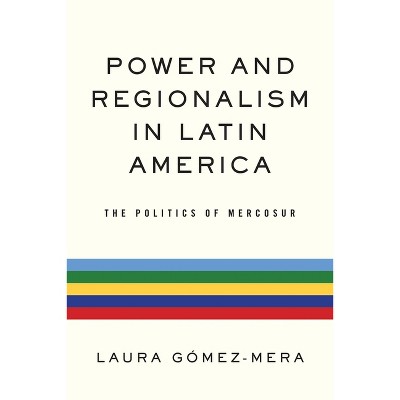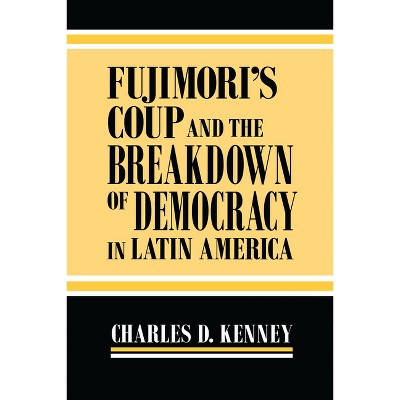Sponsored

The Authoritarian Divide - (Kellogg Institute Democracy and Development) by Orçun Selçuk (Hardcover)
In Stock
Sponsored
About this item
Highlights
- In the context of the global decline of democracy, The Authoritarian Divide analyzes the tactics that populist leaders in Turkey, Venezuela, and Ecuador have used to polarize their countries.Political polarization is traditionally viewed as the result of competing left/right ideologies.
- About the Author: Orçun Selçuk is an associate professor of political science and the director of the International Studies Program at Luther College.
- 356 Pages
- Political Science, Comparative Politics
- Series Name: Kellogg Institute Democracy and Development
Description
Book Synopsis
In the context of the global decline of democracy, The Authoritarian Divide analyzes the tactics that populist leaders in Turkey, Venezuela, and Ecuador have used to polarize their countries.
Political polarization is traditionally viewed as the result of competing left/right ideologies. In The Authoritarian Divide, Orçun Selçuk argues that, regardless of ideology, polarization is driven by dominant populist leaders who deliberately divide constituents by cultivating a dichotomy of inclusion and exclusion. This practice, known as affective leader polarization, stymies compromise and undermines the democratic process.
Drawing on multiple qualitative and quantitative methodologies for support, as well as content from propaganda media such as public speeches, Muhtar Meetings, Aló Presidente, and Enlace Ciudadano, Selçuk details and analyzes the tactics used by three well-known populist leaders to fuel affective leader polarization: Recep Tayyip Erdoğan in Turkey, Hugo Chávez in Venezuela, and Rafael Correa in Ecuador. Selçuk's work provides a rubric for a better understanding of--and potential defense against--the rise in polarizing populism across the globe.
Review Quotes
"The Authoritarian Divide presents a powerful and timely framework for understanding contemporary debates on polarization, populism, and democratic decline. . . . Selçuk's work not only deepens existing understanding of polarization and personalist rule but also opens new avenues for research about the durability of polarization, its consequences for democratic rule, and opposition behavior, all of which are increasingly important in an era of democratic erosion." --Latin American Politics and Society
"The Authoritarian Divide's major contribution is the rich description and discussion of the inclusionary and exclusionary discourse of Chavez, Erdoğan, and Correa. . . . [Selçuk's] book provides a rich resource for our greater understanding of the operation of populism in power." --Democratization
"A thorough analysis of the dynamics behind the affective political polarization fostered by populist leaders in power, and a welcome addition to the literature." --Julio F. Carrión, author of A Dynamic Theory of Populism in Power
"A very measured and cool-headed approach. Selçuk convincingly demonstrates that, today, especially in cases of populists in power, polarization is not really about ideologies or parties but about leaders." --Toygar Sinan Baykan, author of The Justice and Development Party in Turkey
About the Author
Orçun Selçuk is an associate professor of political science and the director of the International Studies Program at Luther College.











